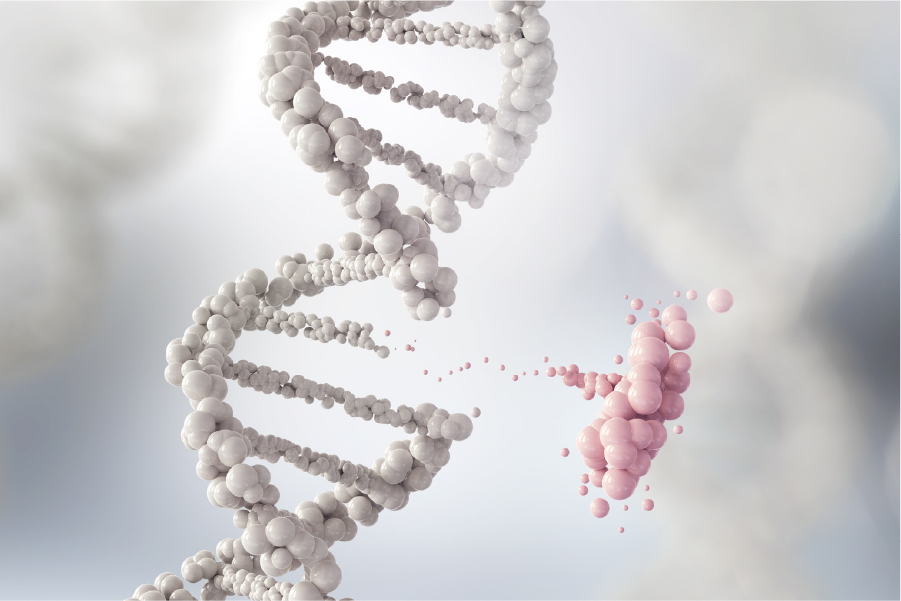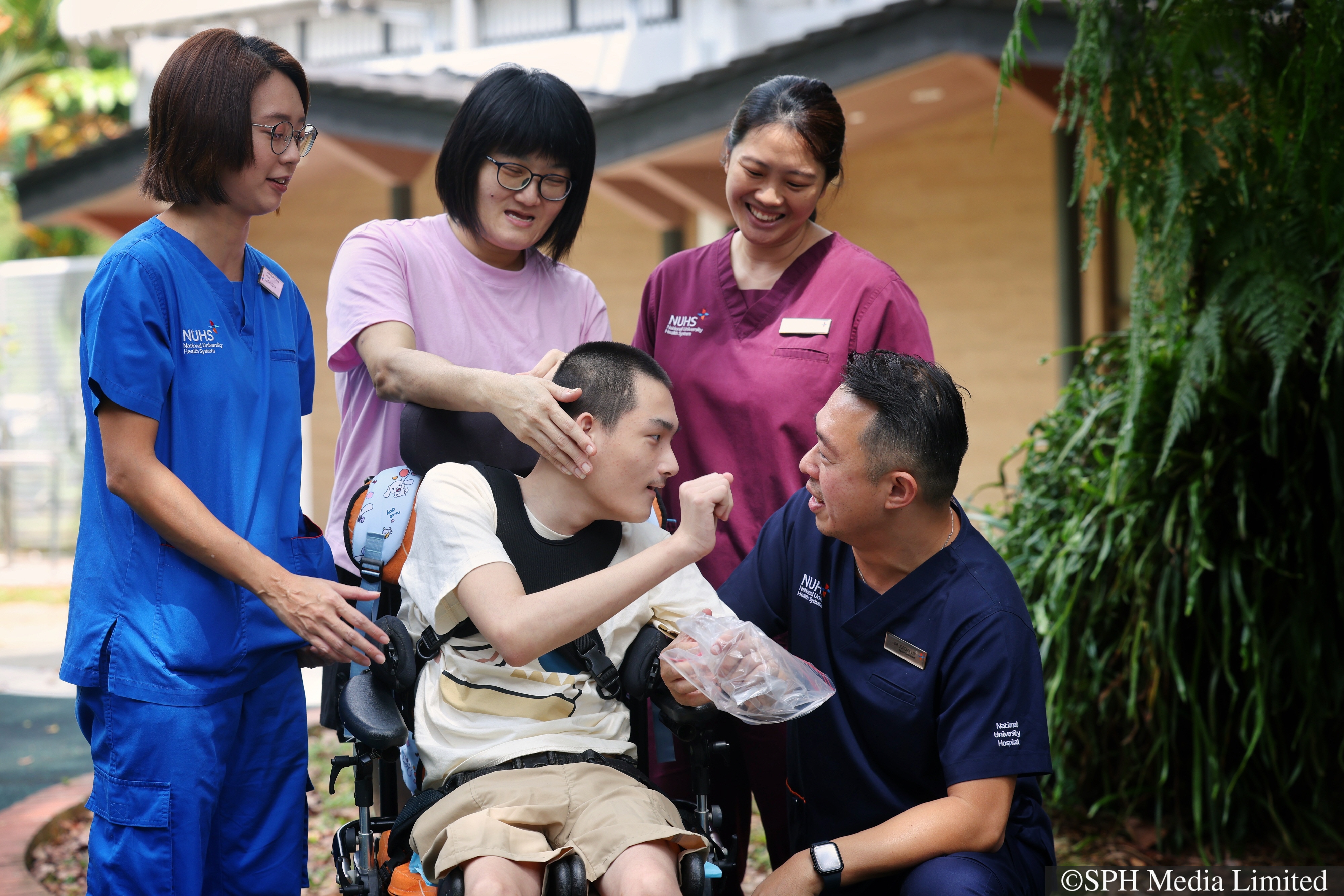A dedicated multidisciplinary team at NUH has been supporting
Mr Lucas Onn, who has Angelman syndrome, in managing seizures
and improving mobility, enabling him to lead a more active life.
Issue 8 | March 2025

 Subscribe and ensure you don't miss the next issue!
Subscribe and ensure you don't miss the next issue!
Seventeen-year-old Lucas Onn greets the world with an infectious smile. His laughter brightens every visit to the National University Hospital (NUH), where he has been receiving care for the past seven years.
Behind Lucas’s sunny disposition is a lifelong condition that presents complex medical and caregiving challenges. He has Angelman syndrome (AS), a rare neurogenetic disorder affecting approximately one in 15,000 live births. It is caused by a loss of function in the UBE3A gene on the maternal chromosome 15, leading to severe developmental delays, mobility difficulties and epilepsy.
Understanding Angelman Syndrome
Angelman syndrome can sometimes be misdiagnosed due to its similarities with conditions such as autism and cerebral palsy. “Many of the early signs, such as developmental delays, difficulty with movement and seizures, are shared across neurological conditions. Because AS is much rarer, it is frequently mistaken for something more common,” says Dr Jeremy Lin, Senior Consultant, Division of Paediatric Neurology, Department of Paediatrics, Khoo Teck Puat - National University Children’s Medical Institute (KTP-NUCMI)1, NUH
Most children with AS are diagnosed after the age of two, once developmental concerns become more pronounced. Lucas’s diagnosis came at just five months old. He had experienced a seizure at two months, which prompted further genetic testing that confirmed the condition. This early detection enabled timely intervention, allowing him to begin physiotherapy and occupational therapy at a critical developmental stage.
While AS does not shorten life expectancy, it is incurable and requires lifelong medical care. Epilepsy is particularly common, affecting about 80 per cent of individuals with AS. Over time, mobility challenges may worsen, and scoliosis or obesity can develop due to reduced physical activity. However, individuals with AS have the potential to lead fulfilling lives with the appropriate support.
Navigating challenges with incredible care
At NUH, a multidisciplinary team has been coordinating Lucas’s care, helping with his condition and improving his quality of life. Lucas was first referred to NUH at the age of 10 when his epilepsy became difficult to manage. Like many individuals with AS, he experienced frequent, unprovoked seizures that disrupted his daily life and required hospitalisation.

Source: The Straits Times Online © SPH Media Limited. Permission required for reproduction.
Given the risks of prolonged seizures and the potential side effects of long-term medication on the liver and kidneys, Lucas’s medical team explored non-pharmacological treatment options. Lucas underwent vagus nerve stimulation therapy, which involved implanting a small, battery-operated device in his left chest to deliver electrical currents to his vagal nerve that help regulate seizure activity.
Lucas’s medical team also focused on his mobility as part of a holistic care plan. As Lucas grew taller, he developed orthopaedic complications and started to lose his mobility. Recently, Lucas underwent tendon release surgery, a procedure that helps ease muscle tightness and improves walking ability. With continued physiotherapy and the assistance of a pacer walker, he is now able to enjoy time outdoors again.
In addition, NUH’s nursing team has been instrumental in supporting both Lucas and his mother. The team worked alongside Dr Lin to calibrate the settings of Lucas’s stimulation implant and guided Lucas’s mother, Mrs Vanessa Oon, on how to handle the challenges of raising a child with special needs. “As children with AS grow older and physically stronger, caregiving becomes more difficult. We focus not only on the patient’s well-being but also on equipping caregivers with the skills and knowledge to manage daily challenges at home,” Dr Lin adds.
1KTP-NUCMI is part of the National University Centre for Women and Children (NUWoC), a national university specialist centre that aims to empower women, children and their families to lead healthier lives.
Like this article? Simply subscribe to make sure you don't miss the next issue of EnvisioningHealth!





















